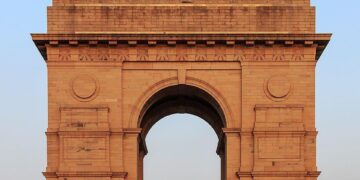COAI Challenges Mumbai Metro Over Mobile Network Access Restrictions
In a recent and significant development within India’s telecommunications sector, the Cellular Operators Association of India (COAI) has publicly accused Mumbai Metro of obstructing equitable access to mobile network infrastructure. Representing leading telecom companies nationwide, COAI has described the metro authority’s conduct as “coercive rather than connective,” highlighting concerns that these practices are detrimental not only to service providers but also to millions of daily commuters who depend on uninterrupted mobile connectivity. This dispute brings into sharp focus the complex relationship between urban infrastructure development and telecommunication services in rapidly growing metropolitan areas.
Allegations of Restrictive Practices by Mumbai Metro Impact Telecom Operators
The COAI alleges that Mumbai Metro is engaging in anti-competitive behavior by imposing excessive fees and stringent conditions on telecom operators seeking access to its infrastructure. According to COAI, these measures create significant barriers for network deployment within metro premises, potentially monopolizing communication channels in one of India’s busiest transit systems.
Key grievances outlined by COAI include:
- Inflated Access Fees: Telecom companies report steep hikes in rental charges for installing equipment within metro facilities.
- Burdensome Compliance Requirements: Complex regulations slow down the rollout of essential network upgrades.
- Lack of Clear Policies: Decisions regarding access agreements lack transparency, leaving operators uncertain about terms and timelines.
This situation has ignited calls from industry stakeholders for regulatory bodies to intervene and ensure fair competition while safeguarding consumer interests. The need for transparent frameworks that balance urban development goals with telecom accessibility is becoming increasingly urgent as cities expand their digital infrastructures.
The Ripple Effects: How Consumers Could Be Affected by Network Access Disputes
The ongoing conflict between COAI and Mumbai Metro threatens more than just corporate relations; it could directly impact everyday users who rely heavily on mobile connectivity during their commutes. Disruptions or delays in network enhancements may lead to inconsistent service quality—affecting navigation apps, real-time communication, emergency alerts, and other critical functions integral to modern urban life.
Moreover, if telecom providers face increased operational costs due to restricted access or inflated fees imposed by the metro authority, these expenses might be transferred onto consumers through higher tariffs or reduced service options. This scenario risks widening the digital divide at a time when affordable connectivity is essential for economic participation and social inclusion.
- Crisis Response & Safety: Reliable mobile networks are vital during emergencies inside crowded transit environments where timely information can save lives.
- E-commerce & Business Operations: Many small businesses depend on seamless communications facilitated via mobile networks; interruptions could hamper productivity significantly.
- Evolving Regulatory Landscape: The dispute may prompt policymakers to revisit existing guidelines governing public-private partnerships related to telecommunications infrastructure sharing across urban transport systems nationwide.
Towards Equitable Solutions: Enhancing Collaboration Between Telecom Providers and Urban Infrastructure Managers
A range of potential remedies have been proposed aimed at resolving conflicts like those seen between COAI and Mumbai Metro while fostering an environment conducive to innovation and growth. One promising approach involves establishing a unified licensing framework that standardizes terms under which telecom operators gain entry into public transport infrastructures—ensuring fairness without compromising operational efficiency.
Create joint oversight committees comprising representatives from both sectors can facilitate open dialogue addressing mutual concerns transparently. Such collaboration builds trust while expediting decision-making processes crucial for timely network expansions aligned with commuter needs.
The adoption of technology-forward models such as open-access networks offers another pathway forward—allowing multiple carriers shared use rights over existing physical assets reduces duplication costs while encouraging competitive pricing benefiting end-users.
Additionally,supplementary technologies like low-earth orbit satellites or community-driven mesh networks (already gaining traction globally) present viable alternatives especially useful in bridging coverage gaps where traditional infrastructure deployment faces hurdles.
A Critical Juncture: What Lies Ahead?
This confrontation between India’s premier cellular association and one of its largest metropolitan rail services highlights broader challenges faced worldwide as cities integrate advanced telecommunications into public spaces. As demand surges—with India projected by GSMA Intelligence (2024) to reach over 900 million smartphone users—the imperative remains clear: ensuring equitable access must go hand-in-hand with infrastructural modernization efforts.
The resolution reached here will likely influence future collaborations across Indian metros—and possibly set benchmarks internationally—for balancing commercial interests against public welfare priorities amid rapid technological evolution.
Conclusion
The dispute involving COAI’s accusations against Mumbai Metro underscores an urgent need for balanced policies promoting fair access without stifling innovation or burdening consumers financially. As both parties work toward common ground through regulatory engagement, transparent negotiations, and embracing new technological paradigms like shared networks or satellite solutions could pave the way toward sustainable connectivity ecosystems serving millions efficiently.














Brothers in Arms: Macron, Merz, and Starmer Join Forces to Forge a New Era Beyond the U.S